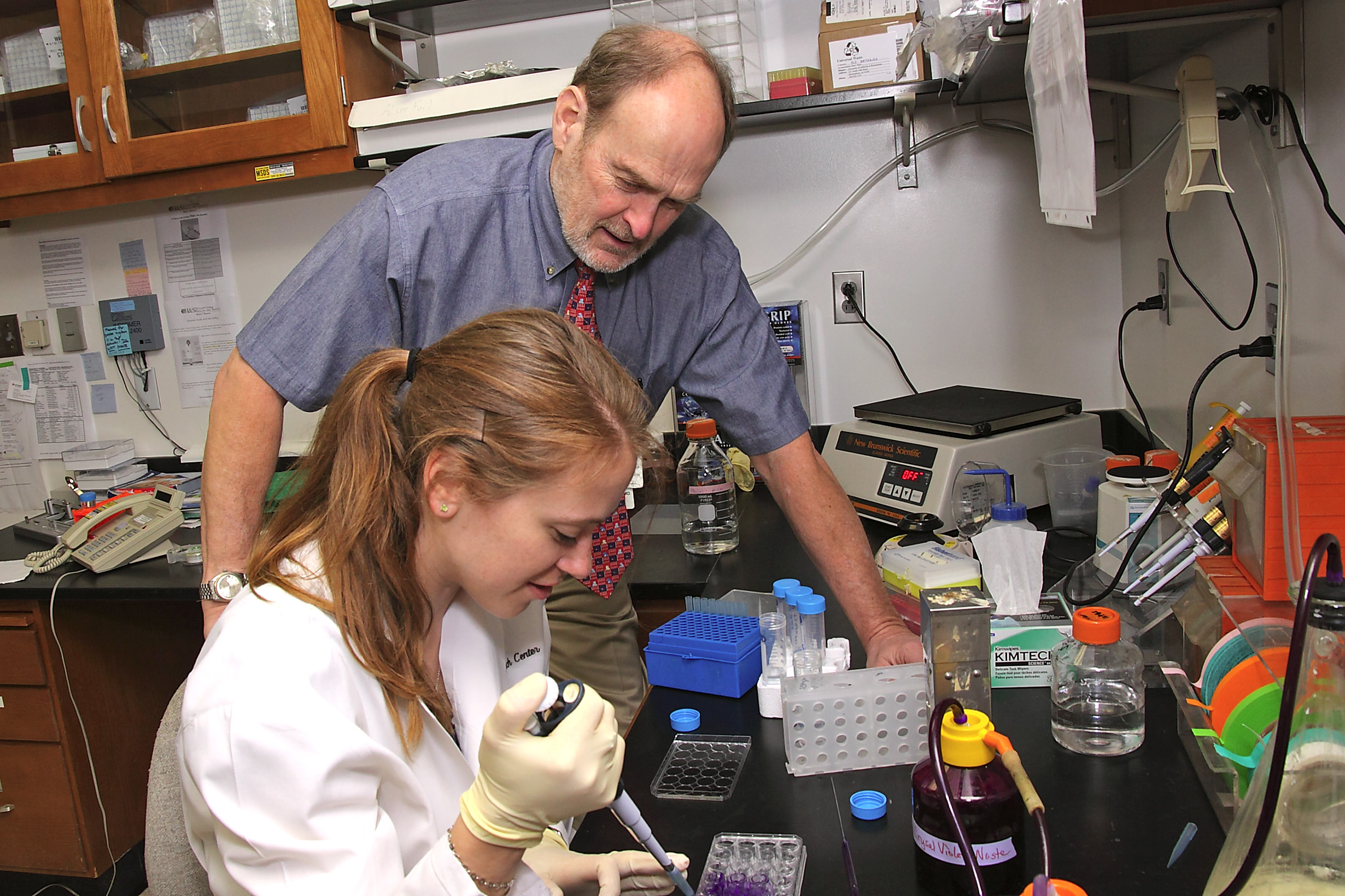 Pediatric neurologist Alan Percy, M.D., is a leading clinician and researcher into Rett Syndrome Researchers at the University of Alabama at Birmingham are part of the international STARS study to see if a drug originally developed for Parkinson’s disease might help reduce breathing issues common in patients with Rett syndrome. The drug, sarizotan, may help reduce the frequency of breath holding, a potentially significant effect of Rett syndrome.
Pediatric neurologist Alan Percy, M.D., is a leading clinician and researcher into Rett Syndrome Researchers at the University of Alabama at Birmingham are part of the international STARS study to see if a drug originally developed for Parkinson’s disease might help reduce breathing issues common in patients with Rett syndrome. The drug, sarizotan, may help reduce the frequency of breath holding, a potentially significant effect of Rett syndrome.
“We often see Rett patients holding their breath for long periods of time, up to 30 seconds at a time, behavior that can go on for hours,” said Alan Percy, M.D., professor of neurology in the Department of Pediatrics, medical director of the UAB Civitan International Research Center and a leading Rett syndrome expert. “Patients often end up swallowing large amounts of air, which can have a very detrimental effect on nutrition, a major issue for Rett patients.”
The study, to be held in four sites in the United States and several international locations, is looking to enroll patients with Rett syndrome who are 13 years and older, have a body weight of at least 55 pounds and experience multiple episodes of breath holding while awake during the day.
Percy says UAB is looking to enroll 10-15 patients locally. Participants will be followed for one year.
“Breath holding can be quite disruptive in younger Rett patients, although it usually subsides in early adulthood,” Percy said. “We currently do not have an effective medication that addresses breath holding. This is the first multisite trial of a potential therapy.”
While its mechanism of action remains unclear, Percy says sarizotan may help prevent breath holding by activating serotonin 1a receptors in the brain stem.
“While this is certainly not curative for Rett syndrome, it could be disease modifying,” Percy said. “This has the potential to be an important drug, as breath holding can be very disruptive and distressing to the family.”
The National Institutes of Health defines Rett syndrome as a neurodevelopmental disorder that affects girls almost exclusively. It is characterized by normal early growth and development followed by a slowing of development, loss of purposeful use of the hands, distinctive hand movements, slowed brain and head growth, problems with walking, seizures, and intellectual disability.
The study is sponsored by Newron Pharmaceuticals U.S., Inc. Other study sites in the United States are the Altman Clinical and Translation Research Institute, University of California San Diego; Rush Medical University Center, Chicago; and Texas Children’s Hospital, Houston.